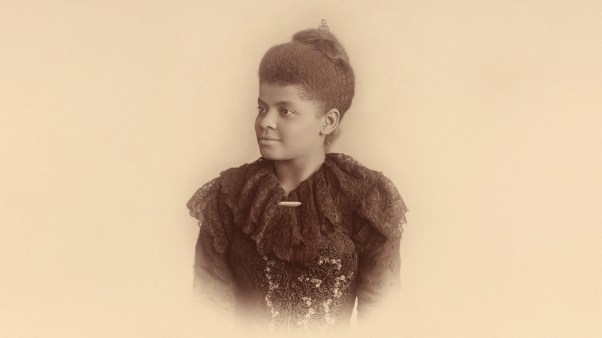Paula Fredriksen, professor of comparative religion at Hebrew University in Jerusalem, has provided readers with a fascinating history of the idea of sin. In her latest book, Sin: The Early History of an Idea (Princeton University Press), Fredriksen (also the author of a study on Augustine's relationship to the Jewish faith) focuses on seven figures: Jesus and Paul (chap. 1); Justin Martyr, the Gnostic theologian Valentinus, and the eventual heretic Marcion (chap. 2); and Origen and Augustine (chap. 3). Together, these figures are meant to emphasize what Fredriksen takes, somewhat exaggeratedly, to be a significant degree of diversity within the early Christian community on the subject of sin.
Her choice of figures is interesting, but highly selective. For the beginnings of the Christian movement, Jesus and Paul are good choices, since about two-thirds of the appearances of "sin" and related words found in the New Testament come from the Gospels and Paul's letters. Many of the remainder appear in the Book of Hebrews, whose contribution is not taken into account. Fredriksen's second-century choices are curious. Including Valentinus and Marcion, whose views the early church rejected, exaggerates the diversity, which seems to be the author's point. Origen is a good choice for the third century and Augustine is an excellent choice for the late fourth/early fifth century.
What struck me as odd at the outset is that Fredriksen's "early history" of sin begins with Jesus and the New Testament, not with Israel and the Old Testament. Jesus and the early church's theologians presupposed Old Testament teaching on sin. Perhaps this explains Fredriksen's omission of Hebrews, whose treatment of sin is closely tied to its teaching regarding the atoning value of Jesus' death in light of Old Testament teaching. Accordingly, readers must recognize the limited and highly selective nature of Fredriksen's history of the idea of sin. It is not so much a history of sin but an analysis of the views of a number of influential thinkers in the Christian tradition.
Different Settings
Fredriksen rightly acknowledges that much of the diversity in the understanding of sin was due to different settings and audiences. Jesus spoke to Israel. Paul spoke to Gentiles. True enough. But I wonder if her comparison of the teachings of these two figures sufficiently takes into account how much these different settings shaped the discussion of sin. Jesus did not simply speak to Israel, he engaged critics whose understanding of sin—what it was and what the remedy was—differed significantly from his views. Nowhere is this seen more clearly than in the debates that arose from Jesus' practice of associating with "sinners and tax collectors." The challenge Paul faced in the Gentile setting was quite different, for he encountered people who did not presuppose the ethics of the Old Testament. Their view of what constituted sin would have been very different from the views of the scribes and Pharisees encountered by Jesus.
Perhaps of even greater importance is the chronological difference. Jesus reached out to Israel—sinners included—before his death and resurrection. Paul reached out to Gentiles (and Israel too) after the death and resurrection of Jesus. The problem of sin and what is needed to remedy this problem was thrown into a whole new light in the aftermath of the Cross. It is not surprising, then, that discussion of sin in the second century and beyond relied so heavily on the theology of Paul. His teaching, in contrast to the teaching and activities of Jesus, presupposed Jesus' death that paid for sin.
Second-century discussion of sin did not merely build on Paul; it engaged a growing criticism and opposition to the new faith. The second-century thinkers articulated their ideas about sin in a much broader philosophical context. Fredriksen rightly says Justin Martyr and Valentinus interpreted sin as largely a result of ignorance of God's will. Hence sin is less a moral failure than an intellectual failure. But Justin Martyr's idea of sin remains rooted in its Old Testament and Jewish soil, often with the synagogue and the Jewish people in mind (as seen, for example, in his Dialogue with Trypho the Jew). But this is hardly the case in the ideas of Valentinus and Marcion, who reject the God of the Old Testament, forming their ideas of sin and the saving work of Jesus along very different lines.
Fredriksen's discussion of Origen and Augustine is fascinating, and here she is at her best. Both of these great thinkers probed the origin and implications of sin for the individual and for the whole of the cosmos itself. For Origen, a human being chooses sin. It is a moral and intellectual error. But once one knows the truth, one will freely embrace it, repenting of sin. Because God loves his creation, it is his will that all come to know the truth and that, in the end, all will in fact embrace it. For Augustine, all of humanity is condemned because of Adam's sin. Because God is gracious, he has chosen some for redemption and salvation. But the redeemed are few. Why this is so is known only to God.
Fredriksen concludes with some pertinent comments about modern understandings of sin. She notes, for example, the tendency of politicians and leaders to acknowledge "making mistakes" rather than "doing wrong" or "sinning." How very true.
Different Gods?
I found some aspects of Fredriksen's book annoying. One was her habit of speaking of her subjects' differing ideas of God and his work and attributes, as though her subjects believed in different gods. We hear of Origen's god, of Justin Martyr's god, and so on. I think Fredriksen has exaggerated the differences, and her language will probably confuse some of her readers. It is right to say that people and communities of faith may differ in their respective understandings of God, but to speak of different gods requires greater justification. We have such justification in the case of Valentinus and the Gnostics, who regarded the God of the Old Testament, the God of the patriarchs, as an evil and inferior second god.
On the whole, however, Sin is a lively and engaging study. It interacts with almost everything that has anything to do with sin (sacrifice, atonement, forgiveness, salvation, God). Although not especially dense, one sometimes loses the thread of the argument and has to go back and find it. It is well worth reading, but it offers only a limited, selective slice of the doctrine of sin and how the early church came to understand it.
Craig A. Evans is Payzant Distinguished Professor of New Testament at Acadia Divinity College in Nova Scotia, and the author most recently of Jesus and His World: The Archaeological Evidence (Westminster John Knox Press, 2012).
Related Elsewhere:
In 2010, John Wilson interviewed Gary Anderson about his similar book, Sin: A History. That book won a Christianity Today Book Award.










